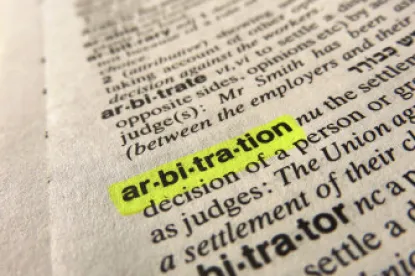The plaintiff sued his former employer for discrimination, retaliation, hostile work environment, and violations of the Missouri Human Rights Act. The defendant moved to compel arbitration based on the parties’ Mutual Agreement to Arbitrate (MAA). The MAA incorporated the rules of the American Arbitration Association and the Judicial Arbitration & Mediation Services, both of which authorize the arbitrator to resolve threshold, or “gateway,” questions of arbitrability. As the court observed, the U.S. Supreme Court has held that the incorporation of these rules into an arbitration agreement constitutes a “clear and unmistakable” expression of the parties’ intent to delegate arbitrability issues to the arbitrator, “unless the provision delegating such authority to the arbitrator is specifically challenged.” Here, the plaintiff did not specifically challenge the MAA’s delegation provision; he argued only that the MAA as a whole was unenforceable for lack of consideration. As such, the court granted the defendant’s motion to compel arbitration.
Murphy v. Oracle Am., Inc., No. 4:19-cv-01207 (E.D. Mo. June 19, 2019)




 />i
/>i
